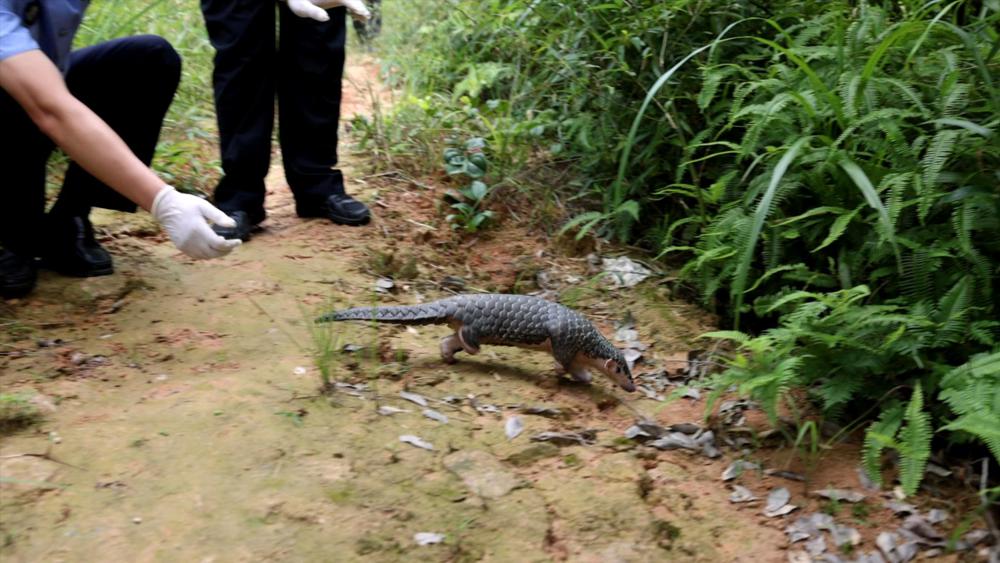Inter-ministerial meeting held on pangolin protection


The Chinese government held an inter-ministerial joint meeting in Beijing on Friday to discuss strengthening protection for pangolins by combating the illegal trade and conserving habitats.
The meeting was a response to accusations made by United States Secretary of the Interior Deb Haaland that China is "diminishing the effectiveness" of an international convention on endangered wildlife by trading pangolins.
These accusations were quickly refuted by China's National Forestry and Grassland Administration and solemn representations were lodged with the US over the matter.
During the meeting, discussions were held to assess the progress of efforts against the illegal trade of pangolins and other endangered species, as well as to find strategies for enhancing their protection, the National Forestry and Grassland Administration said.
The meeting urged the need to maintain a "high-pressure "approach in the fight against the illegal trade of wild animals and plants, particularly pangolin scales.
It called for strengthened law enforcement and supervision, enhanced protection of pangolin habitats, and increased patrols to curb the hunting of pangolins in the wild.
The illegal trade, consumption, transportation and smuggling of pangolins and their products were designated as key targets for joint law enforcement cooperation among departments.
Clear division of responsibilities, effective implementation of duties, information sharing and cooperation and the formation of a unified force against illegal activities were highlighted as essential measures for the success of these efforts.
Studies and assessments were encouraged to accelerate the investigation and monitoring of pangolin populations and habitats in the wild to establish baseline data.
Research and technological advancements in pangolin artificial breeding, as well as efforts to reintroduce them into the wild, are needed to increase their population numbers.
In China, pangolin activities are found in more than 70 locations across at least 10 provinces.
In 2020, as part of protection efforts, all species of pangolins were elevated from national second-class protected wildlife to first class. This signifies more rigorous protection, ensuring severe punishment for crimes related to the destruction of pangolin resources.
In 1989, they were listed as second-class protected wildlife in the National Key Protected Wildlife List.
The National Forestry and Grassland Administration said that pangolins are an ecologically significant species within forest ecosystems.
In 2007, China outlawed the capture of wild pangolins. Since 2018, commercial imports of pangolins and their products have been completely banned. Various measures, including targeted operations, have been carried out to crack down on crimes related to the destruction of pangolins and other wildlife resources.
- Snow sculptures in China's 'Ice City'
- China accelerates urban renewal efforts to create livable, resilient cities
- Ice 'Terracotta Warriors' to debut at Harbin Ice-Snow World
- Major airport in Guangzhou sees record passenger throughput
- China launches new project to support young scientists
- Big lottery winners in Guangzhou claim prize





































